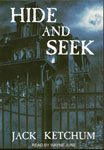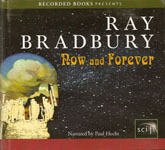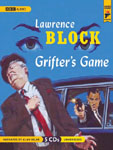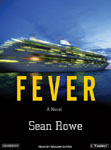
 Hide and Seek
Hide and Seek
By Jack Ketchum; Read by Wayne June
5 CDs – 5.5 Hours – [UNABRIDGED]
Publisher: Audio Realms
ISBN: 9781897304402
Themes: / Horror /
Dead River’s a sleepy little town on the coast of Maine without much going for it. The Great Depression hit hard and never let go. Even now, sixty-odd years later, there’s not much to do, not much going on. So that when a trio of friends, rich college kids, arrive there on a forced march with their parents for summer vacation they have to make their own amusements. And they do, in spades.
So what scares horror writers? I imagine something like this: They draw back the curtain to provide the audience with a full look at their half-hidden ghosts, only to find that their readers react with indifference instead of terror at the final reveal.
This scenario has happened to me more than a few times during my reading experience, which is why I think that the old saw that horror writers “choose” not to write about vampires and zombies and ghouls because they’re “overused” and “cliche” is so much bullshit. Horror writers avoid these elements not because it’s hard to write about them, but because it’s hard to write about them believeably.
Jack Ketchum’s 1984 novel Hide and Seek unfortunately suffers a bit from this malady. Although its monsters are not truly supernatural, Ketchum’s novel contains a beast that really isn’t very scary, and its appearance towards the end of the book is a bit of a letdown–at least from my point of view.
Of course, it’s only a letdown because the buildup to that point is so damned compelling.
Hide and Seek is set in Dead River, a sleepy, depressed tourist town on the coast of Maine, and follows the story of a 20-year-old townie, Dan Thomas. Dan is living a life of inertia (“A tired life breeds tired decisions,” Ketchum writes), but the arrival of Casey, Kim, and Steve, three rich teenagers vacationing with their parents for the summer, shakes up his routine. Although he’s from a very different background, Dan is drawn to Casey, a beautiful but cynical and wild girl with a volatile, dangerous streak in her. She returns his affections and Dan becomes an accepted part of the group.
The teens like to get their kicks by breaking the rules–skinny dipping and petty thievery, mostly. So when Dan tells them about the old Crouch residence–an abandoned coastal house with a grim past that includes rumors of a cannibalistic couple and a pack of wild dogs–the lure is too much to resist. Casey suggests a game of grown up hide and seek without flashlights at night in the house, and the fun (and horror) ensues.
I’ll try not to spoil anything, but suffice to say that Hide and Seek has much more going on under the surface than a teenage slasher or haunted house movie. Hide and Seek is about the darkness we have inside of us. In a play on the title, Casey has her own dark secret that she keeps buried and hidden. Seeking it out at its dark core proves very dangerous, indeed.
The old Crouch house contains a tunnel of horrors in its dusty basement. Read as a symbol, the journey into this dark and rotten place is a voyage inside Casey’s bleeding psyche. A horrible, vile truth lurks in this void, but it must be faced and stamped out if she is to become whole.
Hide and Seek begins with a brief meditation on how fate and chance are unpredictable, and how even a single, awful event can twist and ruin someone for the rest of their life. For Casey, a moment of unforgiveable weakness by her father in her 13th year causes her to develop a wild, nihilistic streak that threatens to consume her. Only when she finally faces her fear–the beast in the cave–does Casey grow up:
In the midst of all the terror, we were happy. The caves had shown us the worst the world could do to you. And for just a moment, something of the best.
But Ketchum is not a typical writer and happy outcomes are not guaranteed. His horrors–and those endured by Casey–are mean and nasty, and can kill.
In summary, if viewed in a purely psychological sense, Hide and Seek works and its implications are frightening. But with a literal reading in the cold light of day, the things in the Crouch house aren’t really so frightening, after all.
Hide and Seek is read by Wayne June, and although I’ve said it before I’ll say it again: The guy has a voice made for horror. He’s not only dark and creepy sounding, but he imbues the text with passion. June is quickly becoming the “George Guidall” of horror.
Note: Hide and Seek is Ketchum’s second novel and, although I still recommend it as a cracking good read, his later stuff (The Lost, The Girl Next Door) gets better.
Posted by Brian Murphy





 Grifter’s Game
Grifter’s Game
